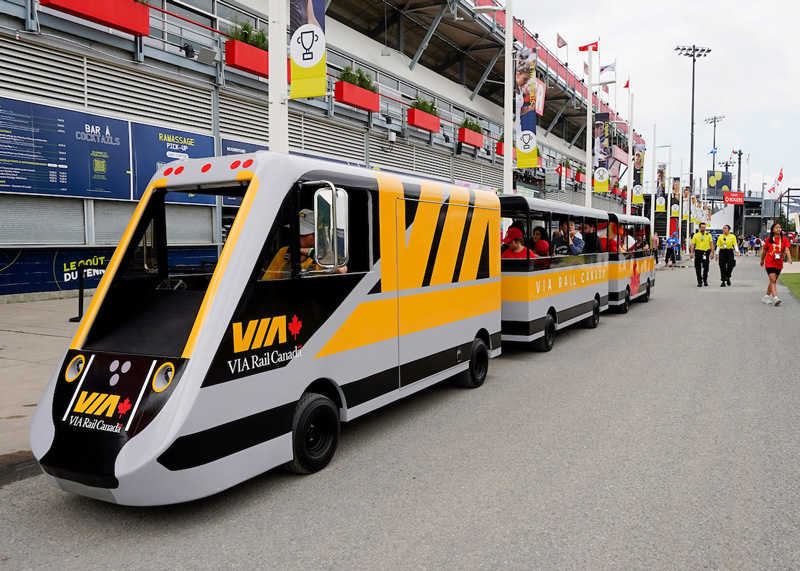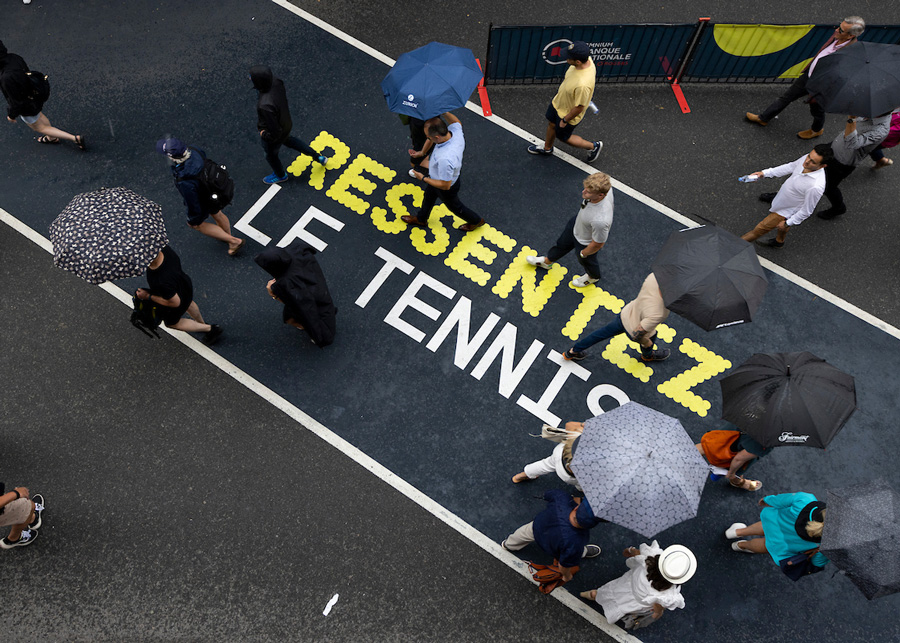
Sustainability takes centre court at Tennis Canada’s National Bank Open in Montreal and Toronto.
By Sarah B. Hood
People have been talking about climate change for decades, but it wasn’t until around 2006, when the influential film An Inconvenient Truth was released, that most major corporate and government organizations seemed to reach a common tipping point and began to entrench sustainability into their planning processes.
Tennis Canada was an early adopter in about 2007, says Valérie Tétreault, Tennis Canada’s tournament director for the National Bank Open in Montreal: “The great thing is, back in those days we had the former tournament director, Eugène Lapierre [now retired], who was a great believer that it was our responsibility to be leaders in this space and to start designing a model that other sporting events around the planet could look at and start copying.”
From an internal committee that determined the pillars of a sustainability plan, Tennis Canada has steadily implemented a sustainability strategy to target residual materials and water management, social responsibility, communication, and energy and emissions management. It was integrated into the Montreal and Toronto editions of the 2023 National Bank Open championships.
A BALANCING ACT
Many of Tennis Canada’s sustainability actions are simple, but they have a big cumulative effect. For instance, they partnered with Ecocup, which produces reusable customized beverage cups and flutes, and allowed spectators to bring their own water bottles onsite to refill at water stations. This presents a bit of a challenge, because free water competes with vendor sales. Toronto participants alone refilled 8,039 water bottles.
It was a balancing act, says Tétreault: “You do want to drive revenue, especially with the goal of giving back as much money as possible to the development of tennis in Canada. We were able to have a healthy conversation about making sure that we do allow fans to come with their own water bottles versus buying single-use water bottles.”
GIVING BACK
In both cities, ticket holders could ride public transit for free to the competitions and, between the two events, more than 5,000 tennis balls were collected for reuse. With social responsibility as a pillar, Tennis Canada prioritizes giving back to its Montreal neighbourhood of Villeray through initiatives such as free ticketing, charitable donations and reclamation of more than a tonne of surplus food.
Other noteworthy initiatives included reusable signage printed without dates and a public waste-separation station in Montreal. “It was a good way to raise public awareness, promote our objectives and make sure people know what happens when you throw stuff away,” Tétreault says.
ENVIRONMENTAL IMPACT
Tennis Canada has worked for several years with Le Conseil québécois des événements écoresponsables (CQEER), an information and exchange network that assists key players in the event, cultural and audiovisual production sectors to reduce their environmental footprint while building social and economic impact. CQEER also organizes the annual Les Vivats event, which recognizes sustainability initiatives in all fields.
“In 2022, the Council helped the Toronto edition [of the National Bank Open] to implement certain ecoresponsible measures for the first time in order to align the initiatives of the two tournaments. In 2023, the Council’s job was more to supervise data collection for the Toronto tournament,” says Karelle Trottier, CQEER’s project manager for sustainable events and environmental health. CQEER prepared reports with recommendations for both events.
A CQEER lifecycle analysis of 10 Quebec events shows that transportation, food and waste management are the top contributors to environmental footprint. “If an event wants to reduce its environmental impact, it must find solutions to reduce the transportation of athletes, spectators, volunteers and employees. This can mean o!ering free or discounted public transport tickets, providing shuttles or renting hybrid or electric vehicles,” Trottier says.
“To reduce the impact of food, we simply need to reduce the supply of red meat, increase the supply of vegetarian meals and prioritize local, organic and fairtrade food,” Trottier says. “Finally, waste management is also an issue. Reduction at source and good waste management must be prioritized.”
FINDING SOLUTIONS
One of the biggest challenges for Tennis Canada, says Tétreault, is working to integrate its suppliers, sponsors and other partners into the plan with everything from zero-waste promotional products to reusable signage, “something we’re trying to tackle in the coming years.”
Trottier says she “definitely” sees more interest in sustainability from event organizers, especially in sport. “Sometimes the interest is really personal to someone inside the organization. On the other hand, many funders are imposing eco-responsible conditions on their funding applications and this is forcing organizations to make greater efforts,” she says, adding that an environmental sports network, the Réseau éco-sportif, has been formed to bring together organizers to find solutions to common challenges.
“The goal is obviously to keep doing better,” says Tétreault. “Beyond our mission to ensure the growth of tennis in Canada, it’s also our responsibility to be an active player in ensuring a sustainable future in the sport.”
Click here to read the sustainability reports for both the Montreal and Toronto National Bank Open events.
Photos: Tennis Canada: Tyler Anderson; Patrice Beriault; Patrice Lapointe; Rosanna U; Peter Power
Published March 2024






